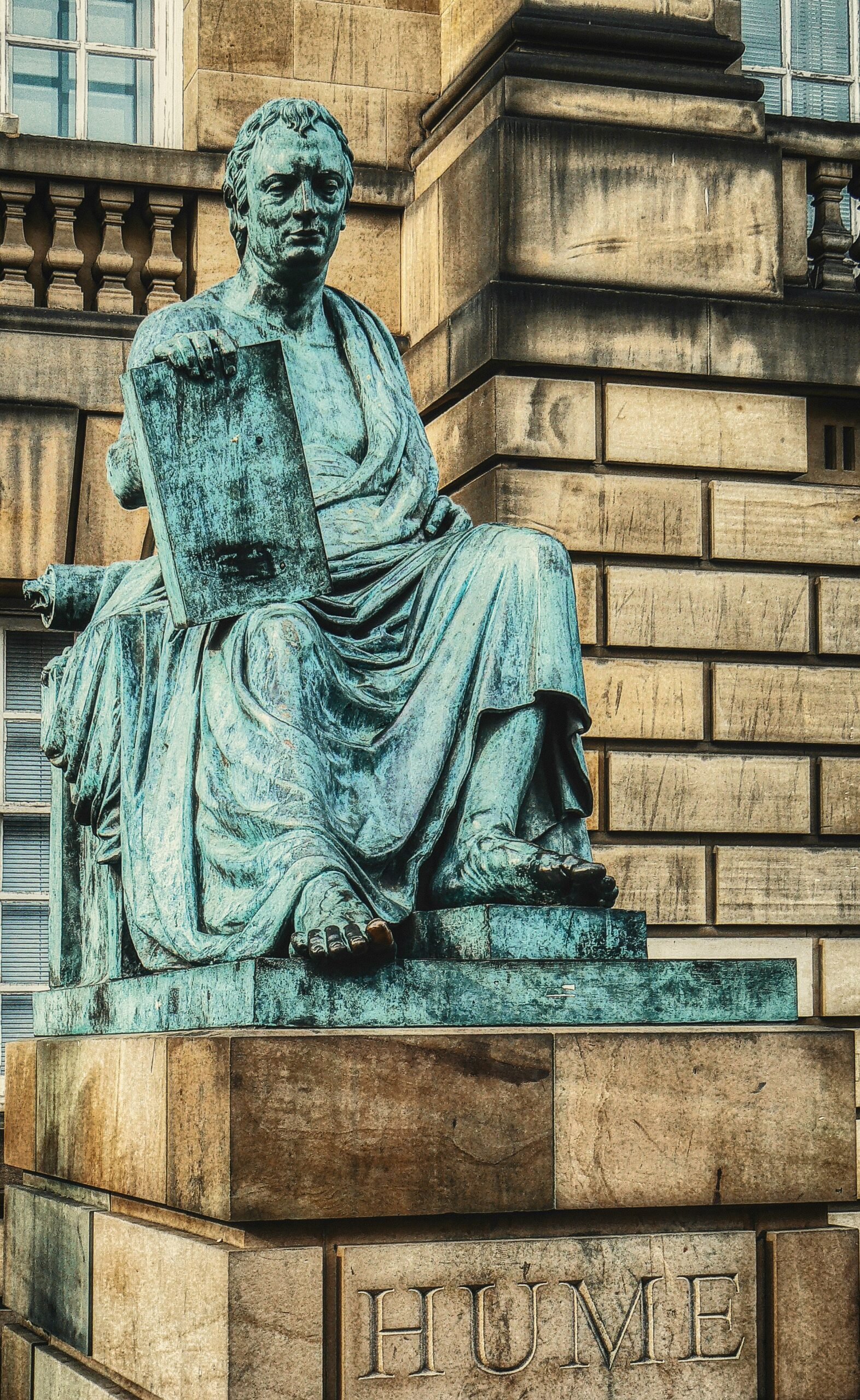Introduction to Post-Modern Philosophy
Post-modern philosophy emerged as a critical response to the principles and assumptions of modernism. Modernism, characterized by its confidence in reason, progress, and universal truths, faced increasing scrutiny during the mid-to-late 20th century. Post-modern thinkers questioned the validity of grand narratives, or overarching stories that claim to explain historical developments and human experiences comprehensively. Instead, post-modern philosophy emphasizes the fragmentary and contingent nature of knowledge.
One of the central themes of post-modern philosophy is skepticism towards grand narratives. Thinkers like Jean-François Lyotard argued that these narratives often serve to legitimize power structures and marginalize alternative perspectives. By deconstructing these grand narratives, post-modern philosophers aim to reveal their underlying assumptions and biases, thus opening up space for diverse and previously silenced voices.
Another key theme in post-modern philosophy is the focus on language and its role in shaping our understanding of reality. Influenced by linguistic turn, figures such as Jacques Derrida and Michel Foucault explored how language constructs meaning and how power is embedded in discourse. They challenged the idea of fixed, stable meanings, emphasizing instead the fluid and dynamic nature of interpretation.
Moreover, post-modern philosophy places significant emphasis on subjective experience. Unlike the objective, detached stance often associated with modernist thought, post-modernism acknowledges the importance of individual perspectives and the ways in which personal and cultural contexts influence our perceptions. This shift towards subjectivity not only democratizes knowledge but also highlights the plurality of human experiences.
In setting the stage for a deeper exploration of specific movements within post-modern philosophy, it is essential to understand these foundational themes. Hermeneutics, critical theory, and deconstruction each build upon and extend these ideas in unique ways. By examining these movements, we can gain a more comprehensive understanding of the diverse and multifaceted nature of post-modern philosophy.
Hermeneutics: Gadamer’s Contribution
Hans-Georg Gadamer’s contributions to hermeneutics have profoundly influenced the field, particularly through his seminal work, “Truth and Method.” Gadamer challenged the traditional notion of objectivity in understanding texts and phenomena, asserting that history and tradition play a crucial role in shaping our interpretations. He introduced the concept of the ‘fusion of horizons,’ which suggests that understanding is a dynamic process that involves a dialogue between the interpreter and the text or phenomenon being interpreted.
Gadamer argued that every act of understanding is rooted in historical context and that our preconceptions, shaped by our cultural and historical background, are indispensable to interpretation. According to Gadamer, it is not possible to completely detach oneself from these influences to achieve a purely objective understanding. Instead, he believed that acknowledging and engaging with these influences allows for a richer and more nuanced interpretation.
The ‘fusion of horizons’ encapsulates Gadamer’s view that understanding is a process of integrating the horizons of the interpreter and the text. This fusion is not a merging of perspectives into a single, homogeneous viewpoint but rather a dialogical process where different perspectives interact, leading to a deeper and more comprehensive understanding. Gadamer emphasized that this process is infinite and open-ended, as new interpretations and understandings continuously emerge through ongoing dialogue.
Gadamer’s hermeneutics also highlights the importance of context in interpretation. He stressed that meaning is not inherent in texts or phenomena but arises through the interplay between the interpreter’s context and the context of the text or phenomenon. This perspective encourages interpreters to consider the broader historical, cultural, and social factors that influence both their own understanding and the meaning of the text or phenomenon they are interpreting.
In summary, Gadamer’s contributions to hermeneutics underscore the significance of history, tradition, and dialogue in the interpretive process. His emphasis on the fusion of horizons and the importance of context has reshaped our approach to understanding texts and phenomena, moving away from the quest for objectivity towards a more dialogical and contextual understanding.
The Foundations of Critical Theory
Critical theory, as an intellectual tradition, finds its genesis in the early works of Karl Marx and subsequent developments by the Frankfurt School. Emerging in the mid-20th century, critical theory endeavors to critique and transform societal structures by uncovering embedded power dynamics, ideologies, and social constructs that perpetuate inequality. This theoretical framework is not merely content with analyzing society; it actively seeks to challenge and change the status quo.
At its core, critical theory is profoundly influenced by Marxist thought, particularly the notion of historical materialism, which underscores the material conditions of life as the foundation for understanding society’s development. Marx’s critique of capitalism, with its emphasis on class struggle and economic exploitation, laid the groundwork for later theorists to expand upon. The Frankfurt School, a group of German scholars including Max Horkheimer, Theodor Adorno, and Herbert Marcuse, further developed these ideas, incorporating psychoanalytic and sociological insights to dissect modern capitalist societies.
One of the central objectives of critical theory is to reveal the underlying power structures and ideologies that sustain social inequalities. By scrutinizing institutions, cultural norms, and social practices, critical theorists aim to expose how these elements function to maintain the dominance of certain groups over others. This involves a thorough critique of various forms of oppression, including economic, racial, gender, and cultural subjugation.
Furthermore, critical theory is inherently interdisciplinary, drawing upon a diverse range of academic fields such as sociology, political science, and cultural studies. This integrative approach allows for a more comprehensive understanding of complex social phenomena. For instance, insights from sociology help elucidate the ways in which social hierarchies are constructed and perpetuated, while political science offers perspectives on the mechanisms of power and governance. Cultural studies, on the other hand, shed light on the role of media, art, and literature in shaping societal values and perceptions.
In essence, critical theory serves as a vital tool for examining and challenging the power dynamics and ideologies that underpin contemporary society. Through its interdisciplinary lens, it provides a robust framework for understanding and transforming the social structures that contribute to inequality and injustice.
Marxist Influences on Critical Theory
Karl Marx’s profound impact on critical theory is evident through various foundational concepts that have been adapted and expanded to examine contemporary social and political issues. Central to Marx’s critique is his analysis of capitalism, which he viewed as a system characterized by inherent inequalities and exploitation. Marx argued that capitalism operates through the commodification of labor, where workers are alienated from the products of their labor, leading to a fundamental imbalance of power between the bourgeoisie (owners of the means of production) and the proletariat (working class).
A pivotal aspect of Marx’s thought is historical materialism, a framework that asserts that the material conditions of a society’s mode of production fundamentally shape its social, political, and intellectual life. According to Marx, history is driven by the dialectical process of class struggle, where conflicting interests between different social classes propel societal change. This concept underscores the dynamic and transformative potential inherent in social conflicts.
Critical theorists, particularly those associated with the Frankfurt School, have built upon Marx’s ideas to interrogate and critique modern capitalist societies. They have extended Marx’s analysis to include the cultural and ideological dimensions of power, arguing that capitalism not only controls economic structures but also permeates cultural institutions, shaping beliefs, norms, and values to maintain its dominance. This extension is evident in the works of theorists such as Max Horkheimer, Theodor Adorno, and Herbert Marcuse, who explored how media, education, and culture serve as tools of ideological control.
Moreover, critical theory emphasizes the importance of praxis, a concept derived from Marxist thought, which refers to the interplay between theory and practice. Critical theorists argue that theoretical insights should not remain abstract but should inspire concrete actions aimed at transforming society. This commitment to praxis underscores the role of critical theory as not merely an academic exercise but as a catalyst for social change. By addressing contemporary issues such as inequality, racism, and environmental degradation, critical theory continues to evolve, drawing on Marx’s legacy to challenge and envision alternatives to the status quo.
Paul Ricoeur, a pivotal figure in post-modern philosophy, made significant contributions to the field of critical theory through his development of the hermeneutics of suspicion. This concept, central to Ricoeur’s work, involves a critical and questioning approach to the interpretation of texts and symbols. By merging hermeneutics—the study of understanding and interpretation—with critical theory, Ricoeur sought to uncover the underlying ideologies and power structures embedded within cultural narratives and societal norms.
Ricoeur’s method of hermeneutics of suspicion draws inspiration from the works of three influential thinkers: Karl Marx, Friedrich Nietzsche, and Sigmund Freud. Each of these thinkers, in their unique ways, challenged accepted truths and exposed the hidden forces shaping human experience and society. Ricoeur adopted their critical stance, emphasizing the need to interpret texts not just at face value but to delve deeper into their concealed meanings and implications.
One of the key aspects of Ricoeur’s hermeneutics is the interpretation of symbols. Symbols, according to Ricoeur, carry multiple layers of meaning that can reveal much about the underlying assumptions and power dynamics within a society. By analyzing these symbols, Ricoeur aimed to uncover the latent content that often goes unnoticed. This approach allows for a more comprehensive understanding of how ideologies perpetuate themselves and shape human consciousness.
Ricoeur’s work emphasizes the importance of recognizing the interplay between language, power, and ideology. He argued that texts and narratives are not neutral but are imbued with the intentions and biases of their creators. Therefore, a hermeneutics of suspicion requires a vigilant and skeptical attitude, constantly questioning and re-evaluating the apparent meanings presented in cultural artifacts.
In integrating hermeneutics with critical theory, Ricoeur provides a powerful tool for examining the complexities of human experience and social structures. His approach encourages a deeper engagement with texts, urging interpreters to look beyond the surface and consider the broader implications of what is being communicated. Ultimately, Ricoeur’s hermeneutics of suspicion offers a nuanced framework for uncovering the hidden dimensions of meaning within the fabric of society.
Deconstruction: Derrida’s Radical Approach
Jacques Derrida’s philosophy of deconstruction represents a profound shift in the landscape of post-modern thought. At its core, deconstruction is a critique of the binary oppositions that underpin much of Western philosophy. Derrida argued that traditional Western thought is built on binaries such as presence/absence, speech/writing, and reality/representation. These dichotomies, according to Derrida, are not neutral but are hierarchical, privileging one term over the other and thereby establishing a power dynamic within language and thought.
Derrida’s method of deconstructing texts involves a meticulous analysis to uncover the inherent contradictions and ambiguities that these binaries conceal. By demonstrating how texts undermine their own claims to coherence and definitiveness, deconstruction reveals the unstable nature of meaning. This process is not about destroying texts but rather about exposing the multiple, often conflicting interpretations that a text can generate.
Central to Derrida’s deconstruction is the concept of ‘différance,’ a term he coined to illustrate the dual process of differentiation and deferral that is intrinsic to the production of meaning. ‘Différance’ suggests that meanings are not fixed but are constantly shifting and are always in a state of becoming. This idea challenges the notion of stable, absolute meanings and emphasizes the fluidity and contingency of language.
Another key concept in Derrida’s philosophy is the ‘trace.’ The trace refers to the residual presence of meanings and elements that are absent in the text but nonetheless influence its interpretation. Every word, according to Derrida, carries the trace of other words, ideas, and meanings, thereby making the establishment of a single, unified meaning impossible.
Through deconstruction, Derrida challenges traditional notions of truth and meaning, encouraging a more nuanced understanding of texts and their interpretations. By highlighting the complex interplay of presence and absence, and the perpetual deferral of meaning, deconstruction opens up new possibilities for critical thought and philosophical inquiry.
Impact and Criticisms of Deconstruction
Deconstruction, as formulated by Jacques Derrida, has significantly influenced various fields within the humanities, notably literary theory and philosophy. In literary theory, deconstruction has revolutionized the way texts are interpreted, emphasizing the fluidity of meaning and the inherent instability of language. This approach challenges traditional notions of a single, authoritative interpretation, fostering a more nuanced, multifaceted understanding of literary works. By questioning the binary oppositions that underpin much of Western thought, deconstruction has also encouraged critical reflection on the philosophical foundations of knowledge and meaning.
Beyond literary theory and philosophy, deconstruction has permeated other disciplines such as cultural studies, law, and architecture. In cultural studies, it has provided tools to deconstruct cultural artifacts, revealing the power dynamics and ideological constructs embedded within them. In legal theory, deconstruction has been employed to uncover the indeterminacies and contradictions within legal texts, advocating for a more interpretative approach to law. In architecture, deconstruction has inspired a movement that challenges conventional design principles, emphasizing fragmentation, complexity, and the interplay of form and function.
Despite its profound impact, deconstruction has faced substantial criticisms. Critics often accuse deconstruction of promoting nihilism and relativism, arguing that its emphasis on the instability of meaning undermines the possibility of objective truth and ethical standards. Additionally, Derrida’s writing style has been described as overly complex and obscure, making his ideas difficult to grasp and accessible only to a select few. These criticisms suggest that deconstruction’s focus on textual ambiguity can lead to a form of intellectual elitism, alienating those who seek clear and practical applications of philosophical concepts.
However, proponents of deconstruction argue that these criticisms stem from misunderstandings of Derrida’s intentions. They contend that deconstruction does not deny the existence of meaning or truth but rather seeks to uncover the processes by which meaning is constructed and contested. By exposing these processes, deconstruction aims to empower individuals to critically engage with texts and ideas, fostering a more dynamic and inclusive intellectual discourse. The ongoing debates surrounding deconstruction reflect its enduring relevance and the continued interest in exploring the complexities of meaning and interpretation.
Conclusion: The Relevance of Post-Modern Philosophy Today
In synthesizing the discussions on hermeneutics, critical theory, and deconstruction, it becomes evident that post-modern philosophy plays a crucial role in contemporary philosophical and social discourse. These movements collectively challenge conventional wisdom, encourage critical thinking, and provide invaluable tools for grappling with complex social issues.
Hermeneutics, with its emphasis on interpretation and understanding, invites us to look beyond surface meanings and engage deeply with texts, cultures, and human experiences. It underscores the fluidity of meaning and the importance of context, fostering a more nuanced and empathetic approach to understanding the world.
Critical theory, on the other hand, offers a robust framework for analyzing power structures and societal inequalities. By questioning dominant ideologies and exposing the underlying mechanisms of oppression, it empowers individuals and communities to seek justice and transformative change. This analytical lens is vital in an era marked by social unrest and calls for systemic reform.
Deconstruction further complements these approaches by unraveling binary oppositions and exposing the inherent instabilities within texts and structures. It encourages a skepticism towards absolute truths and fixed meanings, promoting a more flexible and open-ended engagement with knowledge. This aligns with the contemporary shift towards pluralism and the recognition of diverse perspectives.
Engaging with post-modern philosophy equips us with the intellectual tools to navigate the complexities of the modern world. It aids in interpreting the multifaceted nature of reality and provides a critical stance against simplistic or dogmatic narratives. By embracing the insights of hermeneutics, critical theory, and deconstruction, we can cultivate a more critical, reflective, and inclusive approach to both personal and social issues.
Ultimately, the relevance of post-modern philosophy today lies in its ability to foster a deeper understanding of the human condition and to challenge the status quo. It encourages us to continuously question, reflect, and adapt, thereby enriching our intellectual and social landscapes.















+ There are no comments
Add yours